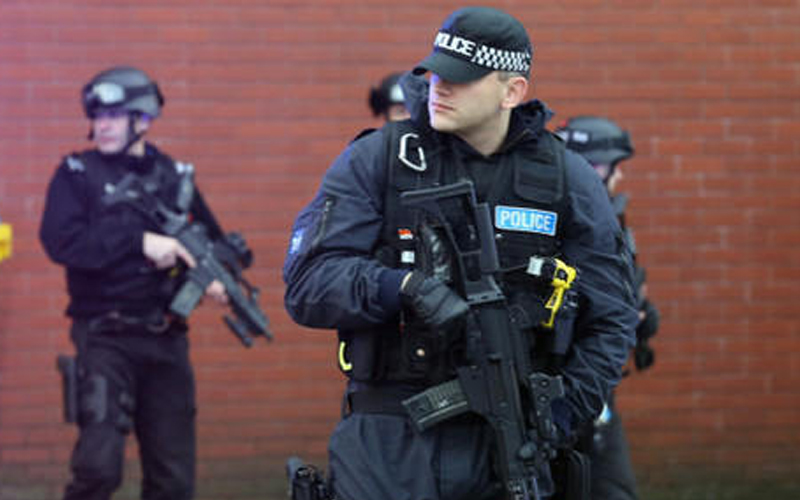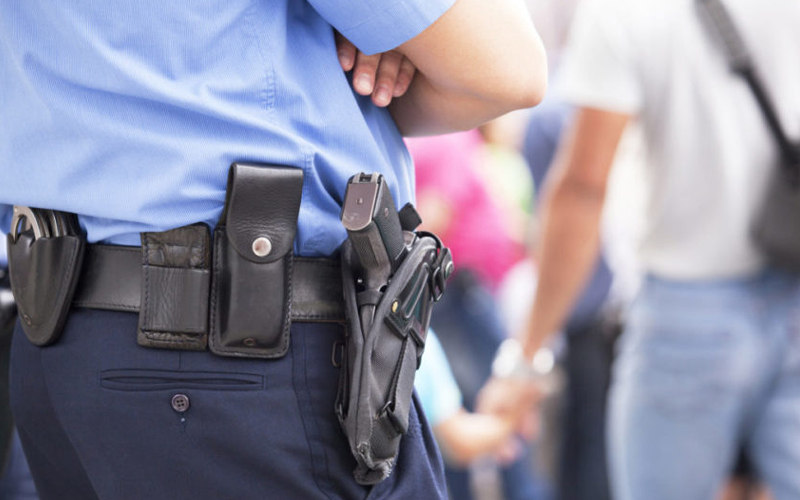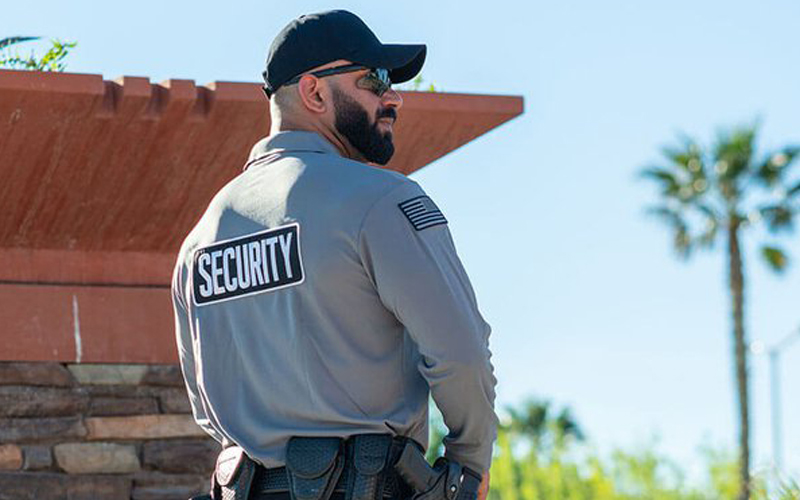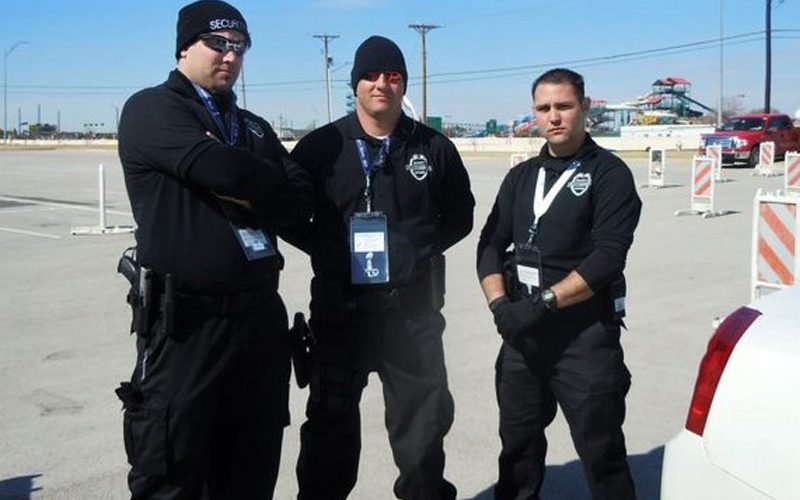
What Is Armed Security?
Armed security guards are specialized guards that have undergone training to safely handle a firearm.
The protection they provide is a little more hands-on in the sense that you see these guards in more higher-risk situations. If the situation were to arise where force is involved, these guards are trained to handle it.
Businesses that have assets with high dollar values, or are handling money like banks, watches or jewelry stores need higher protection than other businesses.
Due to the risks associated with assets mentioned above, criminal activity tends to be drawn there if there’s a sense of vulnerability.
If you’re not sure whether you can hire armed security or not, the answer is an emphatic yes.
Security in and of itself is a deterrent against criminals and threats, but probably the biggest of them all is someone with an armed weapon. Usually, criminals would think twice before putting their lives in harm’s way where the outcome potentially can cost them their life.

What Kinds Of Threats Does Your Business Face?
If your business is in the higher-risk categories mentioned above, or if you’re at a higher risk than most of being targeted by criminals, then you should strongly consider armed security guards.
Armed Guards:
You should consider an armed guard if your business:
- Has assets that are expensive like jewelry or artwork
- Handles a large amount of money in cash
- Hosts large events where crowds have been known to get out of hand like fights or other sporting events
- Is in an area with elevated crime rates
- Your business accommodates large volumes of people such as hotels, apartment complexes, or assisted living homes.
Employees from businesses that work in buildings or facilities with security tend to operate at a higher level knowing that their life isn’t at constant risk and that they’re under the protection of a professional if a problem were to escalate.
Costs Associated With Armed Vs Unarmed Security
Since both kinds of security guards will have different functions, this will affect the price you pay for each of them.
Due to the training involved and job functions that are required, an armed guard will be more expensive to hire.
Usually, there are life risks taken on by the security guard with their job role and they are being paid extra for the protection they’re providing. Liability insurance is also another big factor in the difference in costs as well.
Since unarmed guards will not have to put their lives at risk on a day to day basis, the job functions that are most often used are surveillance monitoring, patrolling the building and outside areas, assisting tenants or customers behind a concierge desk, controlling door access to restricted areas of the building and other similar job roles.
This will be the more cost-effective approach if your business requires a guard to do these kinds of functions at your building.
Which Will You Choose?
Once you take the above pieces of advice into consideration, you’ll know exactly which kind of guard you’ll need for your business. If you’re still unsure, we’d be happy to help. Just contact us here and we’ll gladly lend a hand.
FAQ?
Do armed guards deter crime?
Armed guards can prevent many crimes from happening and this ultimately creates a safer environment for all. The main benefits of having armed security is the prevention of crime and observation/reporting if anything were to occur.
Are security guards armed?
Depending on the kind of business that’s using security guards as a means of protection, the security can be armed or unarmed. Some states will allow a guard to carry a firearm if it’s a requirement of their job. If they are not performing a job function, then they are not legally allowed to carry or use a firearm.
What do armed security guards carry?
It will depend on the job the security guard is being employed for and the industry they work in, but armed security guards can carry batons, pepper spray, tear gas, and even firearms. Other items an armed guard may carry are two-way radios for communication, handcuffs for detainment, flashlights, and a smartphone.



